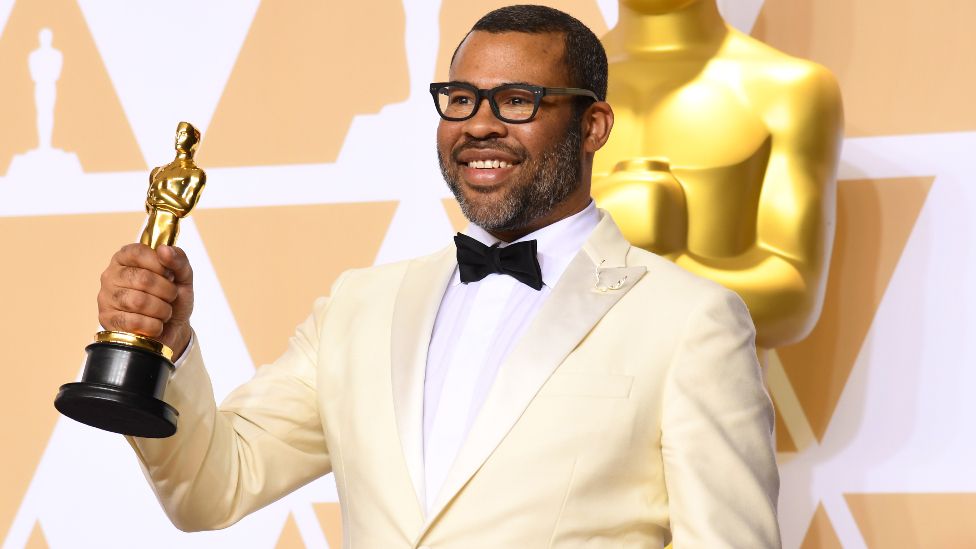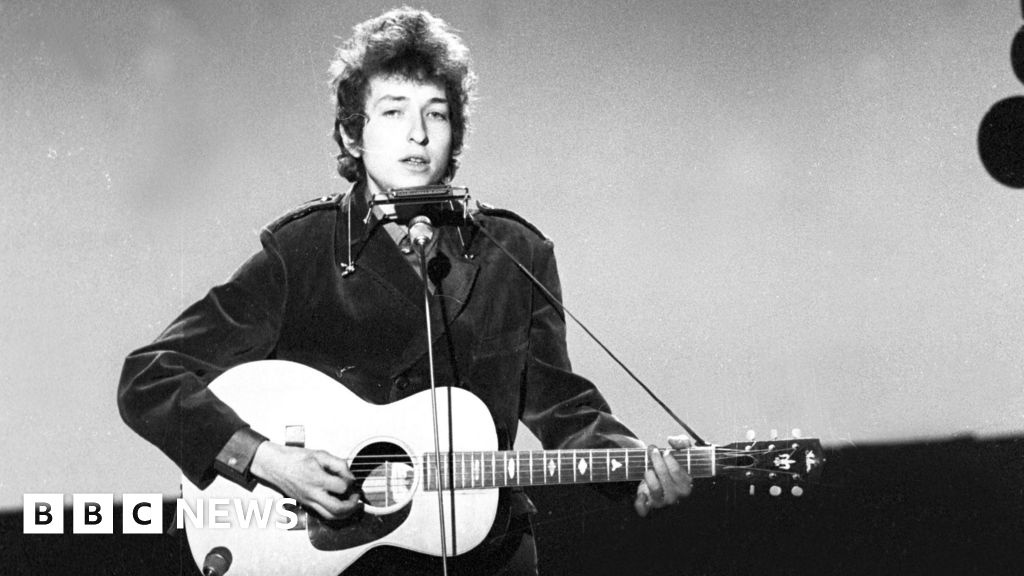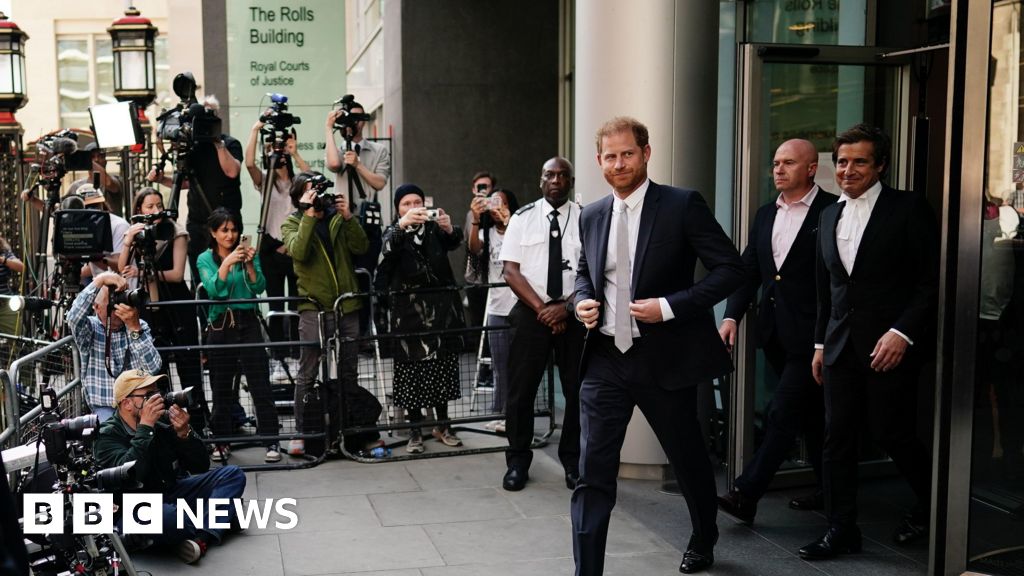ARTICLE AD BOX
 Image source, Getty Images
Image source, Getty Images
Jordan Peele, pictured at the Oscars in 2018, was the first black screenwriter to win best original screenplay
By Sabrina Fearon-Melville
BBC News
In 2018, director and comedian Jordan Peele became the first black winner of best original screenplay at the Oscars for his horror film Get Out.
For many horror fans who felt the genre had been overlooked by award season, this felt like a win; for black horror fans, it felt like the ultimate win. Get Out had been widely praised as groundbreaking since its release a year earlier.
"I've seen this movie. The black dude dies first," character Harry, played by black actor Orlando Jones, states in the 2001 film Evolution, about alien lifeforms landing on Earth.
For years the trope of the black character being the first to die has been widely accepted by film fans.
Mark Harris, co-author of The Black Guy Dies First: Black Horror Cinema From Fodder to Oscar: "In horror movies the ultimate marginalisation of characters is to kill them.
"It epitomises how black characters in these movies and then other genres tend to be kind of second fiddle, thus expendable and so they get bumped off."
Six years on from Get Out's release, US director Tim Story has released a horror film which looks at the intersection between blackness and horror films.
The Blackening tells the story of friends reuniting over the Juneteenth weekend, the US holiday which celebrates the end of slavery.
Image source, Universal
Image caption,The Blackening, released in the UK on Friday, examines the intersection between blackness and horror films
"Growing up there was always the one black person, the token black person that would get killed first," Story says.
"Sometimes we'd make bets on how soon they'd get taken out, and so we really wanted to expand on that. I think what really brought me to the project is the idea that once we made the entire cast black, what happens and who goes first?"
Leaning into satire, the Blackening takes a look at the history of black people in horror films through a lens of social consciousness.
It plays on the motley crew banding together to solve the mystery like in the classic cartoon Scooby Doo alongside the comedy interlaced throughout the classic Scary Movie franchise. It's visibly aware of its comment on society and blackness and brings up the question, how black is black enough to survive the Blackening?
The early portrayal of black people in Hollywood stems back to the 1915 film Birth of A Nation. The film has been denounced over the years for its negative depiction of black people, who were played by white actors in blackface, as being unintelligent and sexually aggressive towards white women.
Image source, Getty Images
Image caption,Night of the Living Dead, released in 1968 was seen as a turning point for black characters in the horror genre
As the film landscape in Hollywood developed, so did the portrayal of black people in the media landscape. Black actors went from playing maids and servants to hyper sexualised characters in the 1970s during the height of the era dubbed Blaxploitation.
Actors like Pam Grier and Fred Williamson paved the way for black talent who became known for playing slick and sexy crime fighters who often fought against the system.
Horror had taken off a decade earlier, films such as 1968's Night of the Living Dead served as a turning point for black people in the horror space. Actor Duane Jones led the cast as Ben, the film's hero, something unheard of for this time in Hollywood cinema.
Many commentators in the horror space view this as the first instance of blind casting. Jones wasn't brought in to play the token black character, he was brought in as he fit the role. Ben leads a group of strangers through a zombie apocalypse in a rural farmhouse. Crucially, though he's killed at the end for being mistaken as a zombie, he doesn't die first.
Image source, Getty Images
Image caption,Left to right: The Blackening director Tim Story, writer and producer Tracy Oliver and actor Jermaine Fowler (pictured in June)
Dr Robin R Means Coleman and Mark Harris feature in the documentary Black Noire, based on Dr Coleman's novel of the same name. Charting blackness and horror, Dr Coleman seeks to dispel the myth of the black person dying first in horror films.
In contemporary horror this is supported by Peele's Get Out. "It was unique in that it's not only had a black protagonist and had a commentary on race, but it did so in in a very entertaining way because of the racism in the film is not the sort of typical cross burning. It's racism in the way these white people fetishise blackness and they want to take it for themselves,' suggests Harris.
The Blackening takes this a step further. Its tagline, "We can't all die first," signifies a cultural understanding of the space and leans into the satire of horror films.
Critics have broadly praised the film. The Hollywood Reporter's Lovia Gyarke said: "A sturdy screenplay with a strong cast propels the Blackening, giving it satisfying momentum through its funny, stressful, and sometimes simultaneously funny and stressful moments,"
Image source, Universal
Image caption,The Blackening aims to occupy the gap between satire and serious social commentary
Deadline's Valerie Complex noted: "Culture and friendships form the crux of the narrative, presenting an ensemble of homies ready to risk all for one another... the script, partnered with Story's direction, capture the culture through an unapologetically black lens."
Fleshing out characters which are normally sidelined is something which Story says that writers, Tracy Oliver and Dewayne Perkins were keen to highlight.
"Dwayne wanted to be sure that the gay man as well as the women were not pushed aside for audience members through this whole project, and he wanted them to be the ones that saved the day."
Black actors in the horror space have come on leaps and bounds from the early days of blackface in Hollywood. The Blackening has done well to sit in a space between satire and serious commentary on what it means to be black not just in horror films but in everyday society.

 1 year ago
30
1 year ago
30








 English (US) ·
English (US) ·